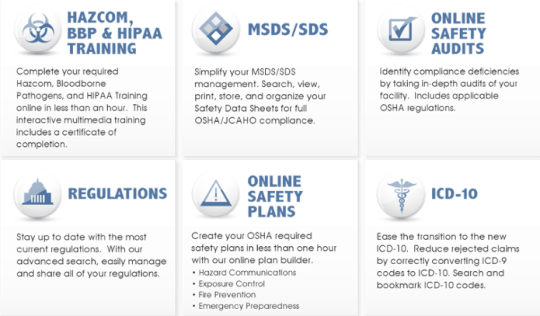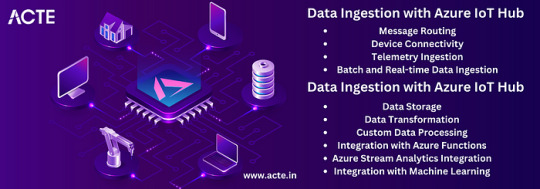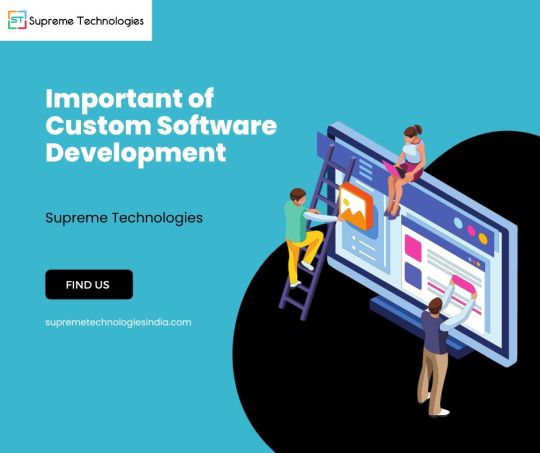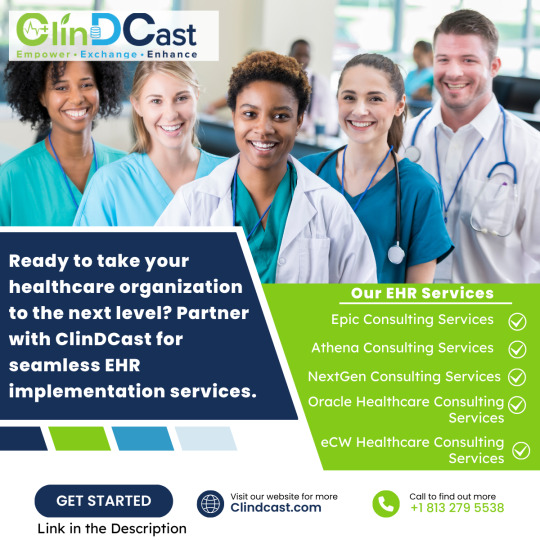#hipaa compliance solutions
Explore tagged Tumblr posts
Text

The HIPAA guidelines on telemedicine apply to any medical professional or health organization that provides remote services to patients in their homes or in community centers. The HIPAA Compliance Services assumes that ePHI can be communicated at distance if the communication is between physician and patient, as many people mistakenly believe.
#hipaa compliance platform#hipaa compliant software#hipaa compliance services#hipaa compliance solutions#hipaa compliant telemedicine
0 notes
Link
0 notes
Text
Shattered Chains: Breaking the Silence on Patient Rights and the Liberation of HIPAA Statements

HIPPA Compliance is a culture that that mandatory for healthcare organizations to implement in business to protect the patient rights, security, privacy, and integrity of protected health information. It is a culture that requires the full participation of staff members and staff commitment to ensure the safety of patients. So, it takes abatement measures to encounter the need for more teamwork, patient-centered focus, and positive communication between healthcare providers and patients. HIPAA is essential for healthcare organizations to avoid legal and financial penalties. “Breaking the Silence on Patient Rights and the Liberation of HIPAA Statements” is a phrase or concept that links with patients’ rights and interpretation of protected information under The health insurance portability and accountability act. The article highlights the information related to it that may help. Read More…
For further details and daily updates, Follow us on LinkedIn or Visit.
#medical billing outsourcing#medical billing service companies#healthcare#medical billing solutions#hospital#medical billing florida#physician#cardiology#hipaa compliance#patient safety#patient privacy
2 notes
·
View notes
Text
Top 14 HIPAA-Compliant Software Development Companies Leading Healthcare Innovation in 2025
Today, there is increased demand for the software development companies that will meet the HIPAA requirements due to the healthcare organization requiring datasets security. These firms offer HIPAA compliant secure, effective and flexible solutions with clear scalability. Adding services and products to the health IT knowledge base: Because they specialize in PHI, they provide patient information with strict security and privacy.
0 notes
Text
Medical waste disposal- Stay up to date with the currents regulations and compliances

#compliance#regulations#online safety#icd10#hipaa compliance#MSDS#online safety audits#medical waste disposal#medprodisposal#waste management#medical waste#pharmacy waste disposal#medical waste disposal solutions#medicines#biohazard sharps container#pharmaceutical waste management#disposal
0 notes
Text

i-medicus offers one-stop telehealth solutions for healthcare providers, helps them overcome distance or time constraints, and lets providers and patients interact seamlessly for better healthcare. From video/audio consultation, dashboard, and appointment booking to digital payments, everything will be done easily with our platform.
#telehealth flexibilities#HIPAA compliance#future of Telehealth#telehealth regulations#telemedicine services#telehealth solutions#telehealth platforms
0 notes
Text
#zymr#healthcare it services#qa automation#qa testing#healthcare it solutions#software testing#healthcare#HIPAA#Compliance Testing Services#software quality
1 note
·
View note
Text
Building an application with HIPAA compliance is very essential as it contains privacy and safety of patients. Creating software of this kind is very difficult and it takes a lot of planning and execution to achieve the goal. Having a custom Healthtech software can also help in getting the right treatment and also helps in detecting the disease and also keeps the patient confidential information safely.
In this article we have mentioned what steps developers should keep in mind while developing custom Healthtech software for secure HIPAA compliance.
Know more: https://www.medigy.com/news/blogs/how-to-develop-custom-healthtech-software-for-secure-hipaa-compliance/
0 notes
Text
Revolutionizing Healthcare: The Role of Cloud Computing in Modern Healthcare Technologies
In today’s digital era, cloud computing is transforming industries, and healthcare is no exception. The integration of cloud computing healthcare technologies is reshaping patient care, medical research, and healthcare management. Let’s explore how cloud computing is revolutionizing healthcare and the benefits it brings.

What is Cloud Computing in Healthcare?
Cloud computing in healthcare refers to the use of remote servers to store, manage, and process healthcare data, rather than relying on local servers or personal computers. This technology allows healthcare organizations to access vast amounts of data, collaborate with other institutions, and scale operations seamlessly.
Download PDF Brochure
Key Benefits of Cloud Computing in Healthcare
Enhanced Data Storage and Accessibility Cloud technology allows healthcare providers to store massive volumes of patient data, including medical records, images, and test results, securely. Clinicians can access this data from anywhere, ensuring that patient information is available for timely decision-making.
Improved Collaboration Cloud-based healthcare platforms enable easy sharing of patient data between healthcare providers, specialists, and labs. This facilitates better collaboration and more accurate diagnoses and treatment plans, especially in multi-disciplinary cases.
Cost Efficiency The cloud reduces the need for expensive hardware, software, and in-house IT teams. Healthcare providers only pay for the resources they use, making it a cost-effective solution. Additionally, the scalability of cloud systems ensures they can grow as healthcare organizations expand.
Better Data Security Protecting sensitive patient information is critical in healthcare. Cloud computing providers invest heavily in data security measures such as encryption, multi-factor authentication, and regular audits, ensuring compliance with regulatory standards like HIPAA.
Telemedicine and Remote Patient Monitoring Cloud computing powers telemedicine platforms, allowing patients to consult with doctors virtually, from the comfort of their homes. It also enables remote patient monitoring, where doctors can track patients' health metrics in real time, improving outcomes for chronic conditions.
Advanced Data Analytics The cloud supports the integration of advanced data analytics tools, including artificial intelligence (AI) and machine learning (ML), which can analyze large datasets to predict health trends, track disease outbreaks, and personalize treatment plans based on individual patient data.
Use Cases of Cloud Computing in Healthcare
Electronic Health Records (EHRs): Cloud-based EHRs allow healthcare providers to access and update patient records instantly, improving the quality of care.
Genomics and Precision Medicine: Cloud computing accelerates the processing of large datasets in genomics, supporting research and development in personalized medicine.
Hospital Information Systems (HIS): Cloud-powered HIS streamline hospital operations, from patient admissions to billing, improving efficiency.
Challenges in Cloud Computing for Healthcare
Despite its numerous benefits, there are challenges to implementing cloud computing in healthcare. These include:
Data Privacy Concerns: Although cloud providers offer robust security measures, healthcare organizations must ensure their systems are compliant with local and international regulations.
Integration with Legacy Systems: Many healthcare institutions still rely on outdated technology, making it challenging to integrate cloud solutions smoothly.
Staff Training: Healthcare professionals need adequate training to use cloud-based systems effectively.
Request Sample Pages
The Future of Cloud Computing in Healthcare
The future of healthcare will be increasingly cloud-centric. With advancements in AI, IoT, and big data analytics, cloud computing will continue to drive innovations in personalized medicine, population health management, and patient care. Additionally, with the growing trend of wearable devices and health apps, cloud computing will play a crucial role in integrating and managing data from diverse sources to provide a comprehensive view of patient health.
Conclusion
Cloud computing is not just a trend in healthcare; it is a transformative force driving the industry towards more efficient, secure, and patient-centric care. As healthcare organizations continue to adopt cloud technologies, we can expect to see improved patient outcomes, lower costs, and innovations that were once thought impossible.
Embracing cloud computing in healthcare is essential for any organization aiming to stay at the forefront of medical advancements and patient care.
Content Source:
2 notes
·
View notes
Text
Where Can You Find the Cheapest Dedicated Server Deals in Los Angeles?
Content Table :
Introduction
Importance of Reliable and Affordable Dedicated Servers
Why Los Angeles is a Prime Location for Hosting Solutions
Key Stats and Facts About Dedicated Servers in Los Angeles
Growing Popularity
Low Latency Connections
Energy Efficiency
Cost-Effective Options
Security and Compliance
What is a Dedicated Server, and Why Do You Need One?
Definition of a Dedicated Server
Benefits of Dedicated Servers:
Performance
Customization
Security
Scalability
How to Find the Cheapest Dedicated Server Deals in Los Angeles
Step 1: Assess Your Needs
Step 2: Compare Hosting Providers
Step 3: Look for Value-Added Features
Why Atalnetworks is the Best Choice for Dedicated Servers in Los Angeles
Key Features of Atalnetworks’ Dedicated Servers:
Cost-Effective Plans
Reliable Performance
Scalability
24/7 Support
Cutting-Edge Hardware
DDoS-Protected Infrastructure
Dedicated Server Pricing Plans at Atalnetworks
ATL10 Plan
ATL100TB Plan
ATL1GUNMETERD Plan
High-End Plans
How Atalnetworks Supports LA Businesses with Cutting-Edge Solutions
Expert Support for Growing Businesses
Optimized for Local Markets
Comprehensive Hosting Services
Enhancing Your Hosting Experience with Atalnetworks
Premium Features and Reliable Performance
Customizable Hosting Plans for Businesses of All Sizes
Thriving in a Competitive Digital Landscape
Call to Action
Start Your Hosting Journey Today
Contact Atalnetworks for a Free Consultation
Read More
Are Dedicated Servers Shaping Web Hosting's Future in Singapore?
Why Tech Leaders Choose Dedicated Server Ireland: A Complete Analysis

When managing a growing business or launching a new tech startup, finding a reliable and affordable dedicated server solution in Los Angeles can be a game-changer. With the increasing demand for secure, fast, and robust hosting solutions, many companies are searching for the best dedicated server deals without breaking their budget.
Key Stats and Facts About Dedicated Servers in Los Angeles
Growing Popularity: Los Angeles is a major hub for tech innovation and media, making it one of the top cities for data center infrastructure and dedicated server hosting in the United States. Reports indicate that the data center market in Los Angeles is projected to grow at over 12% annually through 2025.
Low Latency Connections: For businesses targeting West Coast, Asia-Pacific, and even global customers, Los Angeles-based servers offer incredibly low latency due to its strategic connectivity to undersea cable routes and major internet exchanges. This ensures faster loading times and smoother user experiences.
Energy Efficiency: Many Los Angeles-based data centers lead the way in green energy use, with some facilities powered by up to 70% renewable energy sources, helping businesses reduce their carbon footprint.
Cost-Effective Options: Dedicated servers in Los Angeles can start as low as $50 per month for basic configurations, with high-performance enterprise solutions scaling upwards depending on bandwidth, storage, and customization requirements.
Security and Compliance: Data centers in Los Angeles often adhere to strict compliance standards such as ISO 27001, SOC 2, and HIPAA, ensuring robust security and reliability for businesses handling sensitive data.
These stats highlight why Los Angeles is a prime choice for dedicated server hosting, balancing performance, scalability, and value for businesses of all sizes.
If you’ve been asking yourself where you can find the cheapest dedicated server in Los Angeles, you’re in the right place. This guide will help you explore your options and introduce you to Atal networks, a provider that consistently stands out for its cost-effective and high-performance hosting services in LA.
What is a Dedicated Server, and Why Do You Need One?
A dedicated server is a hosting solution where an entire server is allocated to a single user or business. Unlike shared hosting, where resources like CPU, bandwidth, and memory are divided among multiple users, a dedicated server ensures you have full control and access to the server’s resources.
Why Choose a Dedicated Server?
Performance: Dedicated servers deliver unmatched performance, speed, and reliability.
Customization: You can customize your operating system, control panels, and software for your specific needs.
Security: With advanced protections like DDoS protection, dedicated servers provide top-notch security.
Scalability: As your business grows, you can easily upgrade to match your increasing traffic or processing needs.
Whether you’re running high-traffic websites, hosting applications, or managing large databases, a dedicated server in Los Angeles ensures your business has the infrastructure it needs to succeed.
How to Find the Cheapest Dedicated Server Deals in LA?

Finding an affordable dedicated server web hosting in Los Angeles doesn’t have to be overwhelming. Here are three steps to help you make the right decision:
1. Assess Your Needs
Before starting your search, outline your hosting requirements:
How much bandwidth do you need?
Do you require unmetered data for high-volume traffic?
What level of security is crucial for your business?
Are additional features like full root access or enterprise-grade data centers essential to your operations?
2. Compare Hosting Providers
When comparing hosting providers in Los Angeles, pay attention to:
Pricing plans and whether they match your budget.
The performance and reliability of their servers.
Transparency in costs—avoid hidden fees.
Features like 24/7 support, server customization, and cutting-edge hardware.
3. Look for Value-Added Features
Price isn’t the only factor to consider. Look for perks like:
Live chat support for fast problem resolution.
Advanced options like control panels and server monitoring.
Exclusive deals for new subscribers.
One provider offering exceptional value is Atal networks. With a variety of budget-friendly plans and reliable infrastructure, Atal networks is a go-to option for businesses and developers in Los Angeles.
Why Atalnetworks is the Best Choice for Dedicated Servers in Los Angeles
Atalnetworks offers high-performance dedicated servers designed for businesses of all sizes. With state-of-the-art features and competitive prices, they make high-quality hosting accessible to everyone.
Key Features of Atalnetworks’ Dedicated Servers:
Cost-Effective Plans: Starting at just $99/month, Atalnetworks provides affordable options tailored to your needs.
Reliable Performance: Their servers are housed in N+1 data centers in Los Angeles, ensuring low latency and minimal downtime.
Scalability: Flexible plans allow you to upgrade as your business grows.
24/7 Support: Experienced professionals are always available via live chat and email to help with any issue.
Cutting-Edge Hardware: From Intel Xeon processors to RAID storage, Atalnetworks uses the latest technology for optimal hosting solutions.
DDoS-Protected Infrastructure: Keep your data safe from cyber threats without compromising speed and performance.
Dedicated Server Pricing Plans at Atalnetworks:
1. ATL10
Price: $99/month
Xeon 4116/1230v5/2640v3 CPU
32 GB RAM
1 TB Disk
20 TB bandwidth
1 Gbps Port
2. ATL100TB
Price: $150/month
100 TB Bandwidth
32 GB RAM
DDoS-protected infrastructure
3. ATL1GUNMETERD
Price: $168/month
Unmetered data
32 GB RAM
Perfect for traffic-heavy applications
4. High-End Plans
For businesses needing more power, Atalnetworks offers dual CPU and massive storage options. Their ATL10G plan features 10G unmetered bandwidth and high-speed SSDs for $770/month.
Explore All Plans Here
With these flexible pricing options, you can easily buy a dedicated server in Los Angeles without worrying about cost.
How Atalnetworks Supports LA Businesses with Cutting-Edge Solutions
Atalnetworks is not just a hosting provider; they’re a trusted partner for businesses relying on dedicated server hosting in Los Angeles. Here’s how:
Expert Support for Growing Businesses
Their 24/7 support team ensures your hosting experience is seamless, offering guidance on setup, maintenance, and upgrades whenever needed.
Optimized for Local Markets
Their Los Angeles dedicated servers are optimized for businesses serving local audiences, ensuring quick response times and reliable connectivity.
Comprehensive Hosting Services
Atalnetworks provides a full suite of hosting services, making them a one-stop-shop for all your server and cloud needs.
If you’re looking for the most reliable dedicated server hosting solutions, don’t wait—contact our sales team today to get started.
Enhancing Your Hosting Experience with Atalnetworks
By choosing Atalnetworks, you’re not just getting a cheap server—you’re gaining access to premium features, reliable performance, and a partner dedicated to your success. Whether you're a startup, small business, or an established enterprise, their customizable hosting plans provide the flexibility and security you need to grow.
With dedicated server web hosting in Los Angeles backed by cutting-edge data center technology, Atal networks enables your business to thrive in a competitive digital landscape.
Start your hosting journey today! Contact Atal networks for a free consultation and discover the ideal server setup for your needs.
Read More: 1. Are Dedicated Servers Shaping Web Hosting's Future in Singapore? 2. Why Tech Leaders Choose Dedicated Server Ireland: A Complete Analysis
1 note
·
View note
Text

Explore the vital requirements for HIPAA compliance in software development. Understand the importance of HIPAA, privacy measures, data encryption, and administrative safeguards. Learn about the costs and maintenance strategies to ensure secure healthcare software.
#HIPAA compliance solutions#HIPAA compliance services#HIPAA compliance companies#HIPAA compliance for software development
0 notes
Text
My Journey with Azure IoT Hub: Connecting and Managing IoT Devices at Scale
The Internet of Things (IoT), which enables seamless connectivity and automation across numerous industries, has completely changed the way we engage with technology. I was curious to learn more about the Internet of Things and its possible uses as an aspiring IoT enthusiast. My experience using Azure IoT Hub, Microsoft’s cloud-based IoT platform, and how it assisted me in connecting and managing IoT devices at scale are both discussed in this blog.
Getting Started with Azure IoT Hub

To embark on my IoT journey, I began by understanding the fundamentals of Azure IoT Hub. Azure IoT Hub is a fully managed service that acts as a central hub for bi-directional communication between IoT devices and the cloud. It provides secure, reliable, and scalable connectivity for IoT solutions. Setting up an Azure IoT Hub was my first step. While the process was relatively straightforward, I encountered a few challenges along the way.
Connecting IoT Devices
Once Azure IoT Hub was set up, I delved into the world of IoT devices. I worked with various types of IoT devices, ranging from simple sensors to complex industrial machines. Connecting these devices to Azure IoT Hub required the implementation of device-specific protocols such as MQTT or HTTP. Additionally, I focused on securing device connections and data transmission by utilizing security features provided by Azure IoT Hub.
Real-world examples of IoT devices connected to Azure IoT Hub are aplenty. For instance, in the healthcare industry, wearable devices can transmit patient vitals to Azure IoT Hub, allowing healthcare providers to monitor and respond to critical situations promptly. In smart homes, IoT devices such as thermostats and security cameras can be connected to Azure IoT Hub, enabling remote control and monitoring capabilities.
Managing IoT Devices at Scale
As my IoT project grew, I encountered the need to scale up the number of connected devices. Azure IoT Hub offered robust device management features that simplified the process of managing a large fleet of devices. I could remotely monitor the health, status, and firmware version of each device, enabling efficient troubleshooting and maintenance. Implementing best practices for device management, such as grouping devices based on location or functionality, enhanced the overall operational efficiency of my IoT solution.
Data Ingestion and Processing
Data collected from IoT devices is a valuable asset that can drive actionable insights and informed decision-making. Azure IoT Hub facilitated the ingestion and routing of data to Azure services for further processing and analysis. I had the opportunity to work with Azure Stream Analytics and Azure Functions, which enabled real-time data processing, transformation, and visualization. Leveraging these services allowed me to unlock the true potential of IoT data and derive meaningful insights.

Security and Compliance
Any IoT solution must prioritize security. Azure IoT Hub provided robust security features that ensured end-to-end protection of IoT deployments. These features included device authentication, message encryption, and integration with Azure Active Directory for access control. Additionally, Azure IoT Hub helped me meet compliance and regulatory requirements by providing built-in support for industry standards such as ISO 27001, HIPAA, and GDPR. Throughout my journey, I learned valuable lessons and implemented best practices for securing IoT solutions.
Scalability and Performance
Scaling an IoT solution to handle thousands or millions of devices is a complex task. Azure IoT Hub offered scalability features that allowed me to effortlessly handle large-scale IoT deployments. With Azure IoT Hub’s device-to-cloud messaging capabilities, I could reliably transmit messages to and from a massive number of devices. Moreover, I gained insights into optimizing IoT solutions for performance by considering factors such as message size, frequency, and device capabilities.
Real-World Use Cases
To understand the versatility of Azure IoT Hub, it is crucial to explore real-world use cases. In the manufacturing industry, Azure IoT Hub can be leveraged to connect and monitor machines on the factory floor, ensuring optimal performance and predictive maintenance. In the agriculture sector, IoT devices connected to Azure IoT Hub can collect data on soil moisture levels, temperature, and humidity, enabling farmers to make data-driven decisions for irrigation and crop management. These use cases highlight the valuable role that Azure IoT Hub plays in various domains and industries.
Future of IoT and Azure IoT Hub
The future of IoT is promising, with emerging trends shaping the landscape. As IoT continues to evolve, Azure IoT Hub will play a crucial role in enabling seamless connectivity, advanced analytics, and artificial intelligence capabilities. Integration with other Azure services and continuous updates from Microsoft ensure that Azure IoT Hub remains at the forefront of IoT innovation. The possibilities for IoT applications are limitless, and Azure IoT Hub will continue to empower developers and organizations to build robust and scalable IoT solutions.
Throughout my journey with Azure IoT Hub, I gained valuable insights and experiences. Azure IoT Hub simplified the process of connecting and managing IoT devices, providing a reliable and scalable platform. The seamless integration with other Azure services allowed me to unlock the full potential of IoT data. Moreover, the security and compliance features provided peace of mind, ensuring that my IoT solution was protected from threats. Overall, Azure IoT Hub has been instrumental in my IoT journey, contributing to enhanced efficiency and productivity.
Recommendations and Tips
For those interested in starting their own IoT journey with Azure IoT Hub, I offer the following recommendations and tips:
Begin with a clear understanding of your IoT use case and requirements.
Familiarize yourself with the documentation and resources provided by Microsoft to gain a solid foundation.
Start small and gradually scale your IoT solution as needed.
Take advantage of the device management and security features offered by Azure IoT Hub.
Leverage other Azure services such as Azure Stream Analytics and Azure Functions to derive meaningful insights from IoT data.
Stay updated on emerging trends and best practices in the IoT space.
To deepen your knowledge of IoT and Azure IoT Hub, I recommend exploring Microsoft’s official documentation, participating in the ACTE Technologies Microsoft Azure training, and attending IoT-focused conferences and events.

Azure IoT Hub has proven to be a powerful and comprehensive platform for connecting and managing IoT devices at scale. Throughout my journey, I witnessed the transformative potential of IoT solutions and the crucial role played by Azure IoT Hub in enabling seamless connectivity, advanced analytics, and robust security. As IoT continues to evolve, Azure IoT Hub will undoubtedly remain at the forefront of IoT innovation, empowering organizations to build scalable and efficient IoT solutions. I encourage readers to embark on their own IoT journeys, leveraging the capabilities of Azure IoT Hub to unlock the full potential of IoT. Join me in embracing the future of IoT and revolutionizing industries through connected devices. Please leave your comments, stories, and inquiries in the space provided below. Let’s continue the conversation and explore the endless possibilities of IoT together.
#microsoft azure#cloud services#information technology#education#tech#technology#iot#innovation#cloud computing
5 notes
·
View notes
Text
Why Custom Software Development Is Important

"Software is a great combination of artistry and engineering." Custom software development epitomizes this blend, offering tailored solutions that cater to a company's unique artistry and engineering needs."
—Bill Gates, the co-founder of Microsoft
In a world where one-size-fits-all solutions are increasingly inadequate, custom software development emerges as a powerful tool that empowers businesses to meet their unique needs and challenges. Unlike off-the-shelf software, custom software development tailors applications and systems precisely to a company's requirements. This approach not only offers a competitive edge but also fosters innovation, agility, and scalability.
Custom software development isn't just about creating a standalone application; it's about crafting a digital ecosystem that seamlessly integrates with your existing processes, enhances user experiences, and adapts to evolving market dynamics. By harnessing the expertise of skilled software developers, businesses can unlock a world of possibilities, streamline operations, and drive growth.
In the rapidly evolving landscape of technology, businesses are constantly seeking innovative ways to stay competitive and efficient. One such approach that has gained significant traction is custom software development. This article will definitely help you explore the importance of custom software development, uncovering its myriad benefits and why it has become a cornerstone for modern businesses.
Stay tuned!
Key statistics:
According to Gartner, by 2025, 70% of organizations will use low-code development tools to create custom applications, showcasing the growing importance of customization in software development.
A survey by Forrester found that 62% of businesses that adopted custom software solutions reported a significant improvement in their operational efficiency.
Custom software development allows for better data security. A Verizon report reveals that 43% of data breaches occur at small businesses, underlining the importance of robust, customized security measures.
IBM notes that custom software development can result in a 10-20% reduction in operational costs due to improved efficiency and automation.
A Harvard Business Review study found that businesses using customized software solutions have a 35% higher return on investment compared to those relying solely on off-the-shelf software.
In the healthcare industry, custom software is crucial for ensuring patient data privacy and compliance with regulations like HIPAA. Statista reports that healthcare data breaches cost organizations an average of $7.13 million in 2020.
Custom software development plays a vital role in e-commerce, where personalization is key. Econsultancy reports that 80% of consumers are more likely to make a purchase from brands that offer personalized experiences.
The gaming industry relies heavily on custom software to create immersive and unique experiences. Newzoo estimates that the global games market will reach $218.7 billion by 2024, driven in part by customized gaming software.
In the era of remote work, custom software development for collaboration and communication tools has become indispensable. Buffer found that 98% of remote workers would like to work remotely at least some of the time for the rest of their careers.
Let’s explore this blog post carefully so that it will enable you to understand the significance of custom software development for the unimaginable level of growth of your business. What are waiting for? Let’s move ahead!
Enhancing Efficiency and Productivity
Custom software development allows businesses to automate repetitive tasks, reduce human error, and streamline operations. By designing software that aligns with specific processes, companies can dramatically increase their efficiency and productivity. Tailored User Experiences
Off-the-shelf software may not always meet the unique needs of your customers. Custom software development enables you to create user-friendly interfaces and features that cater to your audience's preferences, leading to higher satisfaction and loyalty.
Scalability and Adaptability
As your company expands, so will its software requirements. Custom software may be built to grow easily, allowing for higher user loads, new features, and changing business dynamics without causing severe interruptions.
Competitive Advantage
In today's competitive landscape, having a technological edge is crucial. Custom software development allows you to innovate faster, respond to market changes, and stay ahead of competitors who rely on generic solutions.
Data Security and Compliance
Data breaches can be devastating to a business's reputation and finances. Custom software development enables you to implement robust security measures and ensures compliance with industry-specific regulations.
Cost Efficiency in the Long Run
While custom software development may require a higher initial investment, it often results in significant cost savings over time. Streamlined processes, reduced operational costs, and increased revenue generation contribute to a positive return on investment.
Integration with Legacy Systems
Many businesses rely on legacy systems that may not be compatible with off-the-shelf software. Custom solutions can bridge the gap by integrating seamlessly with existing technology infrastructure.
Customer-Centric Approach
Understanding your customers' unique needs and preferences is essential for business success. Custom software development enables you to collect and analyze data for more personalized marketing and product development.
Rapid Problem Solving
In a dynamic business environment, issues and challenges can arise unexpectedly. Custom software development allows you to address these problems quickly and effectively with tailored solutions.
Future-Proofing
Custom software can be designed with the future in mind. It can adapt to emerging technologies, ensuring your business remains relevant and agile in an ever-evolving digital landscape.
To summarize,
Custom software development has emerged as a critical asset in an era where enterprises are defined by their ability to adapt, innovate, and meet the particular needs of their customers. Its importance cannot be overstated, as it offers enterprises tools to boost efficiency, provide personalized experiences, and protect their data in an increasingly digital environment.
Companies that engage in bespoke software development may obtain a competitive advantage, predict their operations, and effectively handle the complex challenges of today's business climate. Customized software development is a strategic requirement for any forward-thinking firm, not just a technological choice.
Recognize the power of custom software development with Supreme Technologies! 🚀 We're your trusted partner for tailored solutions that supercharge business growth. Unleash your potential today!
#software solutions#web application development#web development#business#marketing#software development#custom software development
2 notes
·
View notes
Text
An API developer in DigitalAPICraft Company thinks API will revolutionize the healthcare ecosystem
The rise of digital health solutions has transformed how we approach healthcare. APIs play a major role in this transformation, enabling seamless integration with existing systems and data sources. For instance, wearable devices and mobile health applications can utilize APIs to seamlessly transmit health data to EHRs, enabling healthcare providers to monitor patients remotely and gain valuable insights into their health status. API also enables the integration of telemedicine platforms, which allows patients to easily schedule medical appointments, securely share their medical information, and receive virtual care. APIs are sets of rules and protocols that allow different software applications to communicate and interact with each other. Here's how APIs could potentially revolutionize the healthcare ecosystem:
Innovation and Development: APIs can encourage innovation by allowing developers to create new applications and services that leverage healthcare data. For instance, wearable devices and health monitoring apps can connect to APIs to provide patients and healthcare providers with real-time health data.
Data Exchange and Integration: APIs can facilitate the secure exchange of patient data between healthcare providers, hospitals, clinics, and even patients themselves. This can lead to more coordinated and efficient care, as healthcare professionals can access the information they need in real-time.
Patient Empowerment: APIs can empower patients by giving them access to their own health data. Patients can use this data to make informed decisions about their health and share it with different healthcare providers as needed.
Research and Analytics: APIs can make it easier for researchers to access and analyze large sets of anonymized healthcare data for epidemiological studies, clinical trials, and medical research.
Security and Compliance: While APIs offer many benefits, data security and patient privacy are critical concerns in healthcare. Implementing robust security measures and complying with relevant regulations like HIPAA (Health Insurance Portability and Accountability Act) is essential when developing healthcare APIs.
Personalized Healthcare: APIs can enable the integration of patient data from various sources, which can then be used to provide personalized treatment plans and recommendations. This can lead to more effective treatments tailored to individual patients.
Telemedicine and Remote Monitoring: APIs can play a crucial role in telemedicine by enabling video consultations, remote patient monitoring, and virtual healthcare services. This is especially important in situations where in-person visits are challenging or not feasible.
Data Exchange and Integration: APIs can facilitate the secure exchange of patient data between healthcare providers, hospitals, clinics, and even patients themselves. This can lead to more coordinated and efficient care, as healthcare professionals can access the information they need in real-time.
Interoperability: APIs can enable different healthcare systems, such as electronic health records (EHR) platforms, medical devices, and mobile applications, to seamlessly exchange data and share information. This can lead to improved patient care by providing healthcare providers with a comprehensive view of a patient's medical history and data.
The API developer's belief in the revolutionary potential of APIs in the healthcare ecosystem is well-founded. However, it's important to recognize that while APIs offer tremendous opportunities, they also come with challenges that need to be carefully addressed to ensure the safe and effective use of healthcare data. One APIMarketplace comes with a package of features and benefits, which can totally change the way you run your organization and provide you with a much more efficient and hassle-free system, leading you to better results. So don’t wait visit DigitalAPICraft.com and get a free demo of One APIMarketplace today.
For more information: https://digitalapicraft.com/

2 notes
·
View notes
Text
Healthcare IT Consulting Company in Florida

When it comes to healthcare IT consulting, Clindcast stands out as the go-to company in Florida. As a trusted and experienced healthcare IT consulting company, Clindcast specializes in providing top-notch technology solutions and services exclusively tailored to the needs of the healthcare industry. With a deep understanding of the unique challenges faced by healthcare organizations, Clindcast excels in delivering comprehensive and innovative strategies to optimize operations, elevate patient care, and maximize overall organizational efficiency.
At Clindcast, we take pride in our expertise in electronic health record (EHR) implementation and optimization, making us the leading healthcare IT consulting company in Florida. We understand the intricacies and complexities involved in adopting and effectively utilizing EHR systems. That's why our team of seasoned consultants collaborates closely with healthcare providers to assess their specific requirements, craft customized EHR solutions, and seamlessly integrate them into existing workflows. By doing so, we empower healthcare organizations to harness the full potential of EHR systems while ensuring regulatory compliance and maintaining robust data security measures.
With a strong focus on strategic IT planning and project management, Clindcast enables healthcare providers across Florida to stay ahead in the digital transformation journey. Our expert consultants work alongside organizations to develop robust IT strategies that align seamlessly with their unique business objectives. We consider crucial factors such as scalability, interoperability, and cybersecurity to deliver comprehensive, future-proof solutions. Our project management prowess ensures the smooth execution and timely completion of IT initiatives, minimizing any disruptions to daily operations.
Clindcast also recognizes the paramount importance of data analytics and business intelligence in modern healthcare. Our cutting-edge analytics solutions empower healthcare organizations to unlock the potential hidden within their vast data repositories. By leveraging advanced tools and techniques, we transform raw data into actionable insights, enabling improved clinical outcomes, cost optimization, and enhanced patient satisfaction. As the leading healthcare IT consulting company in Florida, we are committed to helping our clients make data-driven decisions that propel their organizations forward.
Moreover, Clindcast serves as a trusted partner in navigating the intricate realm of regulatory compliance. With ever-changing regulations and stringent standards, healthcare providers need a reliable consultant by their side. Our knowledgeable consultants stay at the forefront of the industry, ensuring our clients' adherence to critical compliance requirements. From HIPAA regulations to meaningful use criteria and cybersecurity best practices, Clindcast provides comprehensive compliance services, safeguarding patient information and mitigating potential risks.
At Clindcast, we prioritize building enduring partnerships with our clients. We understand that the healthcare landscape is constantly evolving, and we are dedicated to keeping our clients at the forefront of technological advancements. With our ongoing support and maintenance services, we ensure that our clients' IT systems remain robust, secure, and adaptable to emerging trends in the fast-paced world of digital healthcare.
When it comes to healthcare IT consulting in Florida, Clindcast is the premier choice. Our unrivaled expertise in EHR implementation, strategic IT planning, data analytics, and compliance solutions sets us apart from the rest. Trust us to optimize your healthcare organization, drive innovation, and deliver exceptional patient care in the dynamic realm of modern healthcare.
#healthcare#healthcareit#healthcare it#healthcareconsulting#consulting#consulting company#consulting services#EHR#Florida
4 notes
·
View notes
Text
Sify’s Hosted Private Cloud: Secure, Scalable, and Tailored for Enterprise Excellence

In today’s fast-evolving digital landscape, businesses require cloud solutions that are not only secure but also flexible and performance-driven. Sify’s Hosted Private Cloud stands as a robust solution, offering enterprises the agility of cloud computing while maintaining stringent security and compliance standards.
Why Choose Sify’s Hosted Private Cloud?
1. Unparalleled Security & Compliance
Security is paramount for enterprises handling sensitive data. Sify’s Hosted Private Cloud ensures data protection with state-of-the-art encryption, dedicated firewalls, and compliance with industry regulations such as GDPR, HIPAA, and ISO 27001. With dedicated resources and controlled access, businesses can operate with confidence, knowing their critical information remains secure.
2. Tailored to Business Needs
Every enterprise has unique requirements. Sify’s Hosted Private Cloud offers customized configurations, allowing businesses to scale computing power, storage, and networking as per demand. Whether you’re running mission-critical applications or supporting large-scale workloads, our cloud infrastructure adapts to your needs.
3. High Performance & Reliability
Performance bottlenecks can hamper business growth. Sify’s Hosted Private Cloud is designed to deliver high availability with enterprise-grade hardware, low-latency networking, and a robust infrastructure that ensures uninterrupted operations. With multi-redundant architectures, businesses experience minimal downtime and maximum efficiency.
4. Seamless Hybrid & Multi-Cloud Integration
Sify’s Hosted Private Cloud integrates effortlessly with public cloud providers like AWS, Azure, and Google Cloud, enabling a hybrid or multi-cloud strategy. Businesses can leverage the best of both worlds—private cloud security and public cloud scalability—to optimize workloads and cost efficiency.
5. Managed Services & Expert Support
Managing cloud infrastructure can be complex. Sify offers end-to-end managed services, from deployment and monitoring to security and compliance management. Our 24/7 expert support ensures that enterprises can focus on innovation while we take care of cloud operations.
6. Cost-Effective & Predictable Pricing
Sify’s Hosted Private Cloud provides cost transparency with predictable pricing models. Unlike public clouds, where costs can fluctuate unpredictably, our structured pricing ensures that enterprises can plan their IT budgets efficiently without unexpected expenses.
Industries Benefiting from Sify’s Hosted Private Cloud
Banking & Financial Services: Securely host transactional and regulatory workloads with compliance assurance.
Healthcare: Ensure data privacy and seamless integration with medical applications.
Manufacturing: Optimize operations with real-time analytics and IoT-driven insights.
Retail & E-commerce: Scale dynamically to meet fluctuating customer demands.
Government & Public Sector: Maintain data sovereignty while leveraging cloud efficiency.
Empower Your Business with Sify’s Hosted Private Cloud
Sify’s Hosted Private Cloud is the perfect solution for enterprises looking to harness the benefits of cloud computing without compromising security, control, or performance. Whether you're modernizing legacy systems, building a scalable IT ecosystem, or enhancing disaster recovery, Sify delivers a tailored cloud experience that meets your business objectives.
0 notes